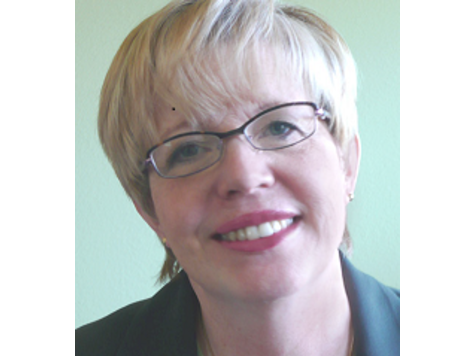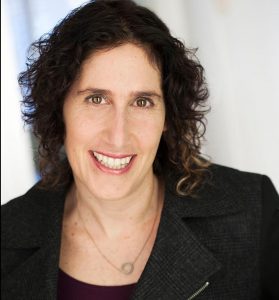
CSAVR
Kathy West-Evans is the Director of Business Relations for CSAVR (Council of State Administrators of Vocational Rehabilitation). CSAVR is the membership organization of Directors from the VR agencies in every state, the territories and D.C., serving over one million individuals with disabilities. She leads the National Employment Team (NET) of 80 VR Business Consultants. The NET helps businesses meet their employment needs through the talent pool and services of VR at the national, state and local level. The information shared by business customers is also used to help individual customers with disabilities develop a career plan that is in line with their interests, skills, talents and the labor market.
We had a chance to speak with Kathy about the work of the CSAVR, an organization that has flown under the radar of many companies, to make sure our readers are aware of the plethora of resources and services it provides to both individuals with disabilities and to the organizations who want to recruit and retain them.
DBP: What is the main objective for the work of the CSAVR?
Kathy West-Evans: The main target of the program is to support people with disabilities as they develop careers and move into competitive and integrated employment; helping individuals build a career, stay in a career and grow in their career. We do this by using what we refer to as a dual customer strategy.
Our first customers are individuals with disabilities. We work with people starting as early as high school and anyone who acquires a disability during the employment lifecycle. We have a focus on transitioning youth but there are also needs with the aging workforce, and people who are focused working after they acquire a disability, no matter when it happens. That includes our nation’s Veterans.
The other customer is the businesses and organizations looking to recruit, hire and retain talent, including people with disabilities. In order to best serve our business customers, we sat down with them to understand what they need from us to prepare individuals for a career, build a talent pipeline and how we can support the organization to ensure they are both successful at hiring as well as keeping the talent in the workplace. From those conversations, we knew we had to have a more streamlined organizational structure to include both a national infrastructure but, more importantly, local supports throughout the footprint of our business customers. In essence, build a team around the business using a coordinated approach driven by the needs of the customer.
DBP: What are some of the services CSAVR provides to organizations as it relates to their approach to recruiting and retaining individuals with disabilities?
K W-E: Our team works to meet a company where they are so we have multiple entry points depending on where the need is and where the business wants and is prepared to start.
We help to build a pipeline of talent. We can leverage state and federal resources to invest in training programs to prepare people for the workplace, but we want to make sure they are aligned with the needs of business. Some of our business partners have internship programs or apprenticeship programs, we have also worked with companies to develop business-based training programs.
We also offer staff training on disability awareness, employment laws and how to build a strategy to make it work for their organization
The VR-NET provides consultation and technical services as well. We have assistive technology experts on our team who can work with organizations on accessibility of their technology platforms like their website or computer systems.
In addition to providing direct support to organizations based on their individual needs, we recently created the Talent Acquisition Portal (TAP) a way of answering the needs of both our individual and business customers. TAP is an online talent exchange platform.
We partnered with a disability-owned business, disABLEDpersons, to create the platform so that it is accessible to a wide range of people and that is more interactive than your run-of-the-mill job board. Candidates can post their resume on the platform and companies can post job openings. It is a platform that offers the opportunity for candidates and employers to interact. We currently have 20,000 candidates on TAP and over 90 companies using TAP.
DBP: What are you seeing as the next phase of workplace inclusion for people with disabilities?
K W-E: Generally speaking, we are seeing more of a focus on developing the culture of the company as opposed to just recruiting efforts. Many organizations have internal employee resource groups focused on people with disabilities and are leveraging the people inside the organization to provide education and to increase the comfort level for colleagues around issues facing people with disabilities in the workplace.
This type of work is important. It is one thing for us to go in and provide a training, but the companies that have employee resource groups are creating the on-going internal resources needed to sustain the work. We are available for technical assistance, when needed.
Business is also more focused on retaining talent. Disability can occur at any time during the employment life-cycle. We are being contacted more often to support business in keeping their valued talent working. It just makes sense to keep people working rather than having an individual seek help after losing a job. It’s a win-win.
DBP: What are some examples of innovative approaches that organizations are employing to recruit and retain people with disabilities?
Hyatt Hotels faced a shortage in the culinary arts area of their organization. They created a training program that takes place on-site using the curriculum of the business but developed in partnership with a community partner, Hands on Education. What’s great about the program is that you are not required to go to culinary arts school to participate, just the motivation and the core work habits to work in this industry. Individuals in the program train at the Hyatt where they have access to a range of work experiences from This provides an alternative path to access the industry and it is a great way to train candidates and develop a talent pipeline to meet the needs of Hyatt. The VR-NET has supported the use of this model across multiple states from Florida and the mid-Atlantic area to Texas, Colorado, California, Washington and states in-between Well over 1,000 people have been trained through the private-public partnership.
Microsoft revamped their interview process to make it more accessible to individuals on the autism spectrum. These individuals often have the skills needed to do the job, but don’t always interview well in traditional interview setting. In order to have more success in hiring individuals on the spectrum, they have been using a one-week working interview. Through Microsoft’s partnership with a community partner, PROVAIL and CSAVR, they are provided with a coach/mentor for the whole week. Microsoft has hired over 65 individuals in engineering roles and other positions as well as hiring interns. They have access to a highly skilled talent pool because they removed that barrier that the traditional interview process created.
We have also worked with CVS Health to understand what it looks like on the retail side and on the distribution side, so that we knew how to get individuals ready for those types of careers. In addition, we worked with them to make sure their hiring program and training programs were accessible to all individuals. In partnership with CVS, we now have a pharmacy tech training program and eight training centers around the country as well as other markets. CVS has hired 500 VR candidates in the last two years.
The last example, is a convenience store/gas station company, KwikTrip. KwikTrip was looking at building out a new position within the organization to increase customer service. They already had cashiers and retail employees that handle customer service but they needed a staff person for stocking and cleaning so that the other employees could focus on customer service and not be pulled away to restock an item. So, they developed the role of Retail Helper in their 600+ stores in Wisconsin, Minnesota and Iowa. They worked with VR to develop how the role would work and VR prescreened the candidates, provided a job coach and any other support the individuals would need to succeed. KwikTrip has since hired over 300 people through the partnership with VR..
This partnership with Kwik Trip has led to an increase in business and the people they hired have better retention rates than other employees. People are choosing to shop there because of the company’s commitment to hiring people with disabilities.
DBP: What are the opportunities that remain for CSAVR and the work you do to support individuals with disabilities and the organizations looking to hire them?
K W-E: Many organizations are still afraid to ask how to do this work. How do you outreach to a population if you don’t know how? So there is still work to be done on raising awareness around the services and programs that are available to organizations in this space.
Another focus for us is, as people are acquiring disabilities, is how do you keep them working? Many people who acquire disabilities after they are already in the workforce are not aware of the services that are available to them. We are working with companies to connect people who need support because business wants to keep these talented individuals. We want to provide support to our business partners and these employees so that they can adjust to a disability and potentially a different way of doing things, not just personally but in the workplace as well.
DBP: What are you excited about? What keeps you optimistic about the future of workplace inclusion for people with disabilities?
K W-E: The VR-NET has access to a lot of skilled, diverse talent, so it is exciting when companies step out and take a lead role with other companies to leverage this amazing talent pool.
It is also great to work with schools and parents to help them look past a medical label and see the skillsets their students and children have to offer a workplace.
This is my 40th year in this profession and I am still excited about it every day. I see the positive impact we can make on people and their families. Despite what individuals are told they “can’t do” they are working, independent and contributing to their community in meaningful ways. It is exactly what anyone of us would want, if/when we acquire a disability.


